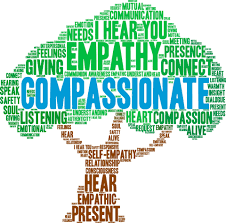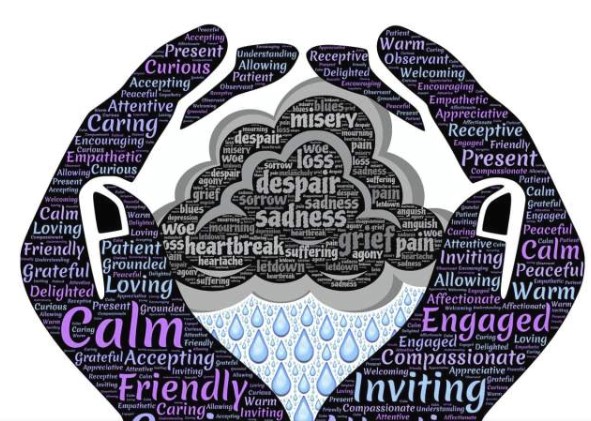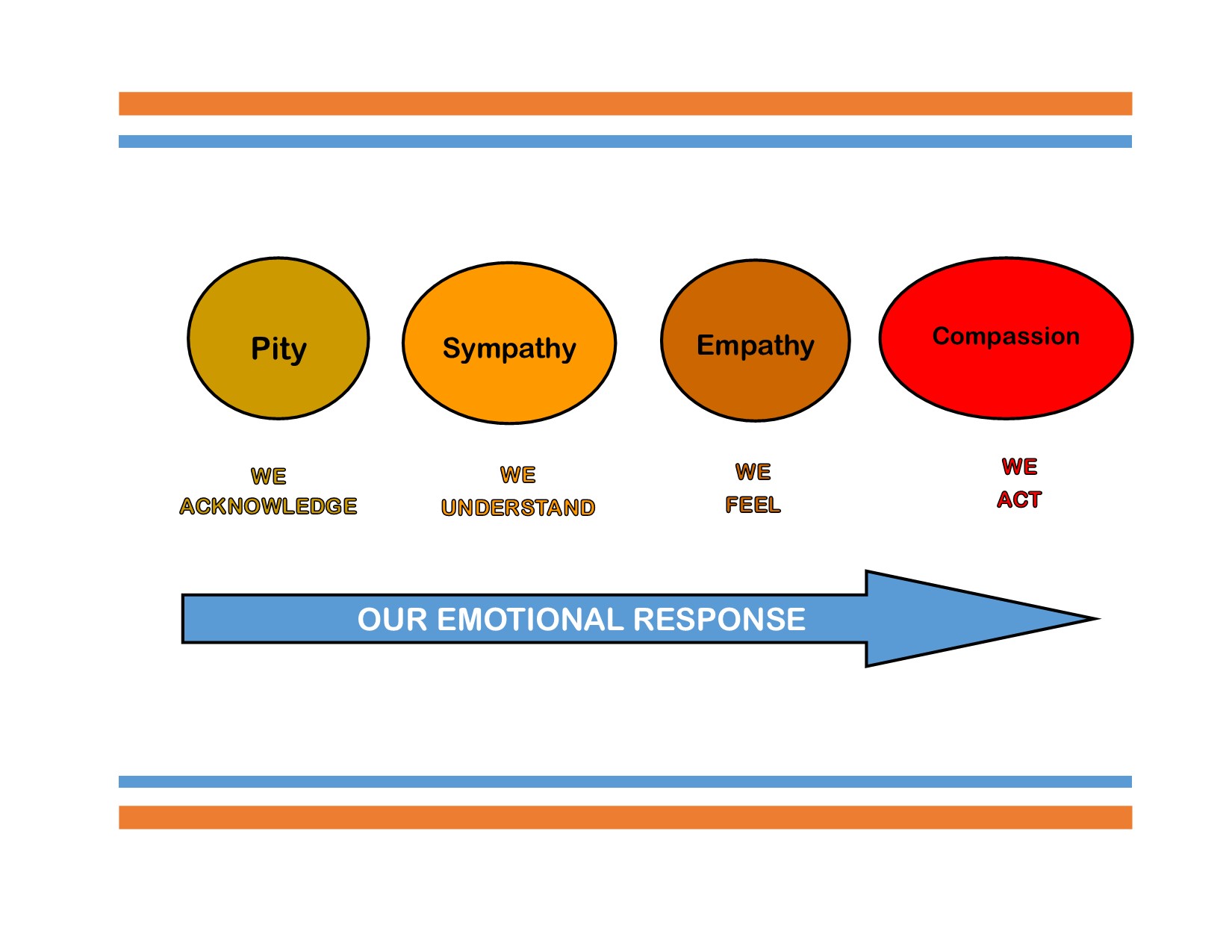Motivation for compassion
Throughout this series we have focused on compassion: its definition, its motivation, and its costs. We defined compassion as a willingness to relieve the suffering of another. Compassion is generally motivated by an individual’s awareness of suffering and the effort it would take to relieve it. Included in that assessment is the costs to become engaged in extending compassion. The Parable of the Good Samaritan helped us visualize the different factors that impacted the extension of compassion.
How can I develop compassion?
There are various teachings in psychology and sociology that suggest that there are ways individuals can increase their compassion IQ.
One school of thought is that compassion is natural and it comes in the “flow of life”. We have compassion for our friends who experience loss or groups of people who experience displacement due to a natural catastrophe. “Feelings of compassion don’t need to be forced,” they say. Simply open your heart, let yourself be moved, and let compassion flow through.” They also recommend activities each day to “open oneself” to compassion’s flow.
However, as followers of Christ, we believe compassion is achieved by more than an intellectual assessment, the natural flow of life, or exercises we can practice. For believers, our display of compassion is motivated by something greater.
A meeting of the hearts
Brené Brown in her book, Atlas of the Heart, describes compassion this way.
Compassion is the daily practice of recognizing and accepting our shared humanity so that we treat ourselves and others with loving-kindness and we take action in the face of suffering. Compassion is a “virtuous response that seeks to address the suffering and needs of a person through relational understanding and action.”
In her description, Brené captures the connecting link between us and those we see suffering. It is our humanity. It is important that we continually acknowledge the “humanity factor” and the fact that we each are created in the image of God (Gen. 1:27) and therefore, are to be treated with both love and respect. It is our humanity that extends beyond our intellectual lens of who are deserving of our mercy and kindness (Micah 6:8).
Compassion is a spiritual response.
The previous sources of compassion where intellectually derived. In contrast, God’s compassion is spiritually based. Can a non-Christian show compassion? Of course. The difference is the motivation that leads to their act of mercy and kindness.
In the Parable of the Good Samaritan, the first two travelers’ motivation to intercede was influenced by their flesh. Their final choice was based on what best satisfied their “flesh”: self-comfort, self-preservation, and self-importance.
The Good Samaritan, on the other hand, saw the need, and then resolved to help because he looked with “spiritual eyes”. He looked at the man and saw his humanity. Like himself, the beaten traveler was in the image of God and deserving mercy. Setting his fleshly responses aside, the Samaritan then showed him compassion.
Are we ready to show compassion?
Compassion for the believer is motivated by two things: our identity in Christ, and our relationship with God. Our spiritual position demands a “different response” to the situations and circumstances we experience in this “fallen world.”
To increase our compassion IQ, I recommend we become more like Jesus. Jesus’ compassion was extended to the helpless crowds (Matt. 9:36), the sickly masses (Matt. 14:24), the hungry people (Mark 8:2), and to all in need of “love and mercy” (Isa. 61:1-3).
The true center of Christian living is that we be extensions of Jesus to those in need. These needs can be social, political, or financial. They can be resolved through advocacy, philanthropy, sponsorship, or personal involvement. Jesus’ compassion still flows to and through us today. As the elect of God, holy and beloved, we are to put on bowels of mercies, kindness, humbleness of mind, meekness, and longsuffering (Col. 3:12).
Dear Jesus,
Help me to daily see the humanity in others. Let me not be moved by my head but by my heart. As You saw and were “moved with compassion”, let me be moved by love and bowels of mercy. Help me be your hands and help those whom You send into my life.











